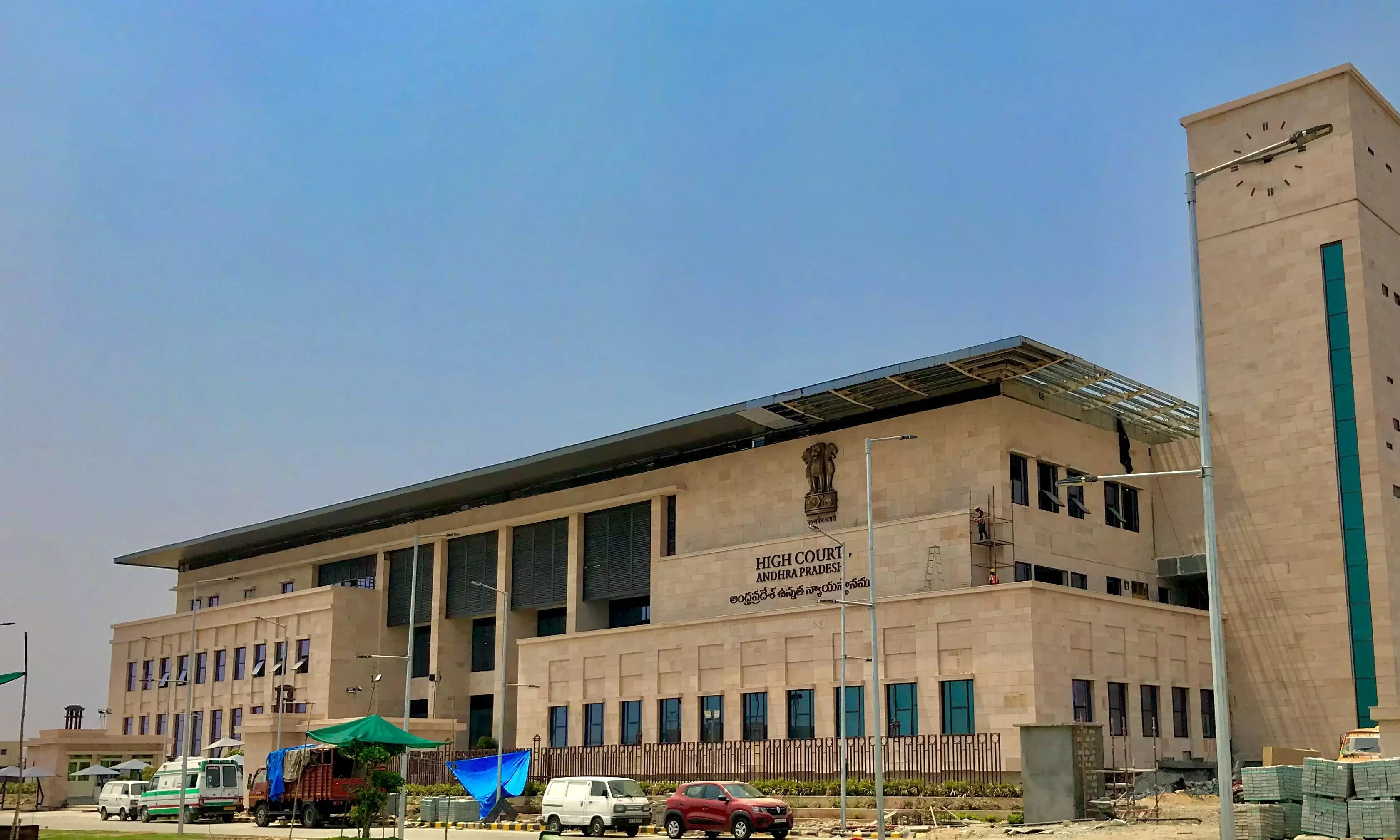Shocker to YSRCP: AP HC stays housing project in Amaravati’s R5 Zone
A week ago, CM Jagan laid the foundation stone for the construction of 50,793 houses at Krishnayapalem village in the Capital Region Development Authority (CRDA) limits.
By Sri Lakshmi Muttevi
Amaravati: In a major blow to the YSRCP government, the Andhra Pradesh High Court on Thursday issued a stay on the construction in Amaravati’s R5 Zone. While passing the interim orders, the court said that the larger public interest is against the construction of houses for the Economically Weaker Sections (EWS) in the R5 zone in Amaravati.
While Andhra Pradesh chief minister YS Jagan Mohan Reddy laid the foundation for the construction of houses, the Amaravati Farmers’ Joint Action Committee (JAC) challenged it in the AP High Court. The Andhra Pradesh government is likely to challenge HC stay orders in the Supreme Court.
A three-member bench, comprising Justice DVSS Somayajulu, Justice Cheekati Manavendranath Roy, and Justice Ravinath Tilhari heard the petitions.
Farmers were promised plots
A week ago, CM Jagan laid the foundation stone for the construction of 50,793 houses at Krishnayapalem village in the Capital Region Development Authority (CRDA) limits. This was part of the state government’s plan to build 45 social infrastructure projects for Rs 1,829.57 crore. The construction of the houses in these layouts would cost around Rs 1,371.41 crore and Rs 384.42 crore would be spent on infrastructure facilities in the R5 Zone of Amaravati.
In March, the state government declared a new zone R5 in Amaravati to provide houses to poor people over 900 acres of land. A GO 45 was issued on March 31, 2023, allowing the commissioner of CRDA to hand over 1134.58 cents of land to the collectors of the Guntur and NTR districts. An agreement was made that the farmers who have been given lands would be given plots in the R5 zone.
The contract entered into by the farmers with the APCRDA for surrendering their land comes under the provisions of the APCRDA Act 2014, the Land Pooling Rules, 2015 and the Amaravati Land Allotment Rules, 2017.
The APCRDA Act provided for the creation of the capital city by a Land Pooling Scheme (LPS) which is defined in Section 2(22) of the APCRDA Act. Small parcels of land were handed over by the owners/farmers to be converted into large land parcels which would in turn be developed with infrastructure etc. The farmers/owners would in turn get a reconstituted plot after deducting the land for public purposes, playgrounds, and social housing for economically weaker sections.
However, both parties are in contention regarding the state’s power to allot land to the EWS houses, whether proper procedures etc., were followed, whether the modifications made by the government in power are in accordance with law and whether the land under the APCRDA, in this case, follow the LPS Rules. The writs filed challenge the amendment to the Act and the GO 45.
‘Project can result in loss of Rs 2,000 crores’
Considering the law surrounding the issue, including the Amaravati Judgment, the court said that “it cannot be a silent spectator at this stage.” The court said that an enormous amount of public funds are now proposed to be spent on the matter. “If that public money is spent, they cannot be recouped,” the court said
The court said that the project can lead to a loss of at least Rs 1,500-2,000 crores for the state. “If this is lost, who will be responsible?” the court asked. As per the Supreme Court of India’s directions, a patta holder cannot seek equities.
The court said that the LPS Rules and the Land Allotment Regulations were not followed by the APCRDA in the allotment of the land to the revenue department. In the absence of payment of the full sale price as per the rules, the transfer of land cannot be completed, and further construction is not allowed, the court said.
The court said that this case requires a full-fledged hearing. It said that the balance of convenience is in favour of maintaining the status quo with respect to the houses till the final judicial orders are passed.
The original master plan of the housing project was formulated under Telugu Desam Party (TDP) government led by former chief minister Chandrababu Naidu, which had pooled land from farmers and landowners in the region. Those who pooled their lands were promised developed plots in an urbanised capital city. But all development activity was halted after the YSRCP came to power in 2019.